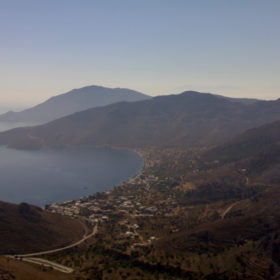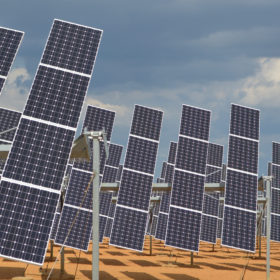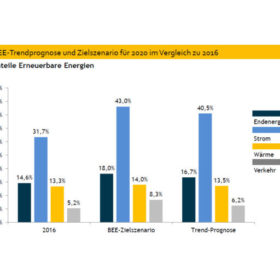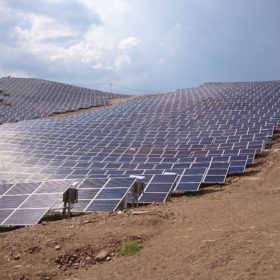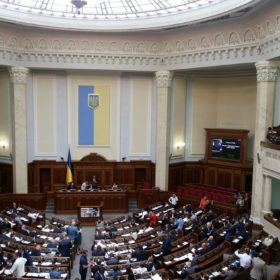Greece’s first battery storage system under way in the Aegean Sea
The island of Tilos in Greece’s Aegean Sea is going to host the country’s first renewable energy plus battery storage system. pv magazine explores why this is so significant for Greece.
Global installed PV capacity exceeds 300 GW, IEA PVPS
The world’s cumulative PV capacity had surpassed 303 GW at the of 2016, according to a report from IEA PVPS. Globally, solar power is now able to cover approximately 1.8% of power demand.
French presidential election: what to expect for solar from the winners of the first round?
Both winners of the first round have said they want more solar during their electoral campaigns. While Macron promises to double installed PV capacity by 2022, Le Pen claims she will push for a massive deployment of solar and biomass (not wind), although under an “intelligent protectionism”.
Germany could miss 2020 renewable energy target, report says
According to German renewable energy association BEE, the country could fail to reach its 2020 EU target for renewables covering 18% of its total energy consumption. The association claims that if Germany aims to achieve this target, an additional 22 TWh of electricity from renewables per year must come from the power, heat and transport sectors.
OSCE helps Turkmenistan take advantage of its solar potential
The international organization has organized an event to help local government and institutions to develop a national strategy for solar energy.
Armenia exempts import of PV components from customs duties
The Armenian government has granted exemption from customs duties for the first time to local developer Investment Media Group. The measure is intended to support the implementation of the country’s $58 million solar program.
Getting ready for terawatts of solar (with charts)
Researchers from NREL, Fraunhofer ISE and Japan’s AIST have released a new paper which looks at the barriers to deploying multiple terawatts of solar PV and what can be done to overcome them.
4JET launches CIGS processing tool
German equipment supplier 4JET microtech has launched its new MPCT solution which it says will enable laser edge deletion, bus bar exposure and via drilling operations in CIGS glass substrates.
STA calls on UK Government to remove tax barriers to solar
Data released this week by Britain’s Solar Trade Association shows that rooftop deployments across the country plummeted in the first quarter of 2017, after a hike in the business rates for small solar installations took effect earlier in the year.
Ukraine approves new law to make energy market more competitive
The eastern European country has adopted a new law to liberalize the energy market and to meet requirements of the EU energy legislation. State support for renewable energies will be maintained.
